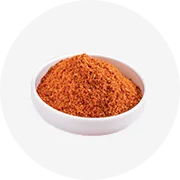



















Microcrystalline cellulose (MCC) is a refined wood pulp derivative known for its versatility and application in various industries. As a non-digestible, dietary fiber, MCC is widely recognized for its stability and is commonly used as an excipient in pharmaceuticals. The substance, identified by the unique identifier 9004-34-6, is a white, odorless powder that is chemically inert and not absorbed by the human body.
The utility of microcrystalline cellulose spans across several forms, such as microcrystalline cellulose powder and cellulose tablets. Its primary use is as a bulking agent and filler in tablet manufacturing, under names like Avicel PH101 and Avicel PH102. Additionally, MCC is utilized in the food industry to prevent caking and as a fat substitute. In the realm of supplements, microcrystalline cellulose in supplements serves as a non-caloric filler and can aid in the controlled release of active ingredients.
MCC is characterized by its crystalline structure, which contributes to its robustness and insolubility in water. This crystallinity, which differentiates it from other forms of cellulose, is what gives crystalline cellulose its unique functional properties. The material is also thermally stable and compatible with a variety of substances, making it an ideal excipient in the pharmaceutical industry.
The benefits of incorporating MCC into products are manifold. As a fiber, it can aid in digestive health, though it is primarily used in manufacturing for its binding properties. Microcrystalline cellulose safe usage is well-documented, as it is non-toxic and hypoallergenic. In tablet formulation, MCC provides excellent compressibility and carries active ingredients effectively. It also contributes to the physical stability of tablets, helping to maintain their shape and integrity during transport and storage.
Sustainability and safety are paramount in the production and use of MCC. The raw materials for mcc microcrystalline cellulose are sourced from sustainable forests, ensuring minimal environmental impact. The safety profile of MCC is well-established, making it a preferred choice in both food and pharmaceutical applications.
Selecting the appropriate grade of MCC, such as Avicel 101 or Avicel 102, is crucial for the intended application. Each grade, like Avicel RC591, has specific characteristics that make it suitable for certain uses. It is essential to consult with a knowledgeable supplier to determine the most appropriate type of MCC for your needs.